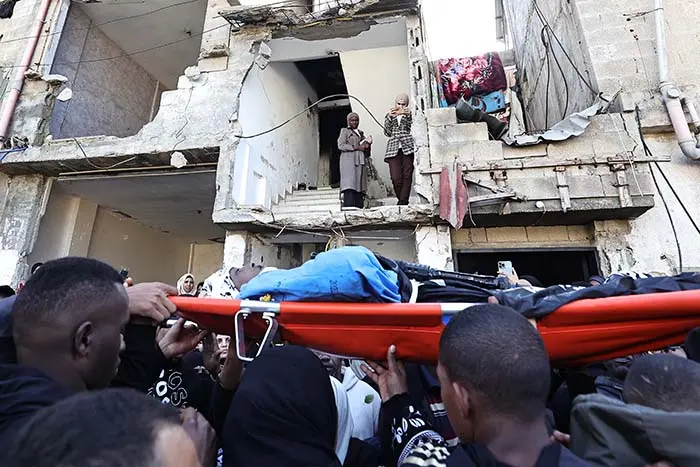
NEARLY 20,000 BABIES BORN INTO GAZA WAR
Thousands of babies have been born into conditions “beyond belief” in Gaza since the war there erupted more than three months ago.
UNICEF spokeswoman, Tess Ingram, back from a recent visit to the Gaza Strip, described mothers bleeding to death. Also, one nurse had performed emergency caesareans on six dead women.
Nearly 20,000 babies have been born into the war that began after the Hamas attacks inside Israel on October 7, according to UNICEF, the UN children’s agency.
“That’s a baby born into this horrendous war every 10 minutes,” Ingram told reporters in Geneva. She spoke via videolink from Oman.
“Becoming a mother should be a time for celebration. In Gaza, it’s another child delivered into hell,” she said, emphasising a need for urgent international action.
“Seeing newborn babies suffer, while some mothers bleed to death, should keep us all awake at night,” she said.
Hamas’ October 7 attack resulted in the deaths of about 1,140 people in Israel, most of them civilians. This was according to an AFP tally based on official figures.
Israel has vowed to “annihilate” Hamas in response, and its air and ground offensive has killed at least 24,762 Palestinians Around 70 percent of them are women, children and adolescents, according to figures from the Hamas-run health ministry.
Ingram described “heartbreaking” meetings with women caught up in the chaos.
‘Unimaginable challenges’
One woman, Mashael, was pregnant when her house was hit and her husband buried under the rubble for several days, and her baby stopped moving.
“She says she is sure now, about a month later, that the baby is dead,” Ingram said. But, she added: “She is still waiting for medical care.”
Mashael had told her it was best “a baby isn’t born into this nightmare”, she said.
Ingram also told the story of a nurse named Webda, who said she had performed emergency caesareans on six dead women in the past eight weeks.
“Mothers face unimaginable challenges in accessing adequate medical care, nutrition and protection before, during and after giving birth,” Ingram said.
“The situation of pregnant women and newborns in the Gaza Strip is beyond belief, and it demands intensified and immediate actions.”
The infant mortality rate in Gaza at the moment is unknown, she said.
But she added: “It is safe to say that children are dying now because of the humanitarian crisis on the ground as well as from the bombs and bullets.”
Ingram said the Emirati Hospital in Rafah was now catering to the vast majority of pregnant women in Gaza.
“Struggling with overcrowded conditions and limited resources, staff are forced to discharge mothers within three hours of a caesarean,” she said.
“These conditions put mothers at risk from miscarriages, stillbirths, preterm labour, maternal mortality and emotional trauma.”
Many pregnant and breastfeeding women and babies are living in “inhumane” conditions in Gaza, including makeshift shelters, with poor nutrition and unsafe water, she said.
This, she warned, was “putting approximately 135,000 children under two at risk of severe malnutrition”.
“Humanity cannot allow this warped version of normal to persist any longer. Mothers and newborns need a humanitarian ceasefire.”
